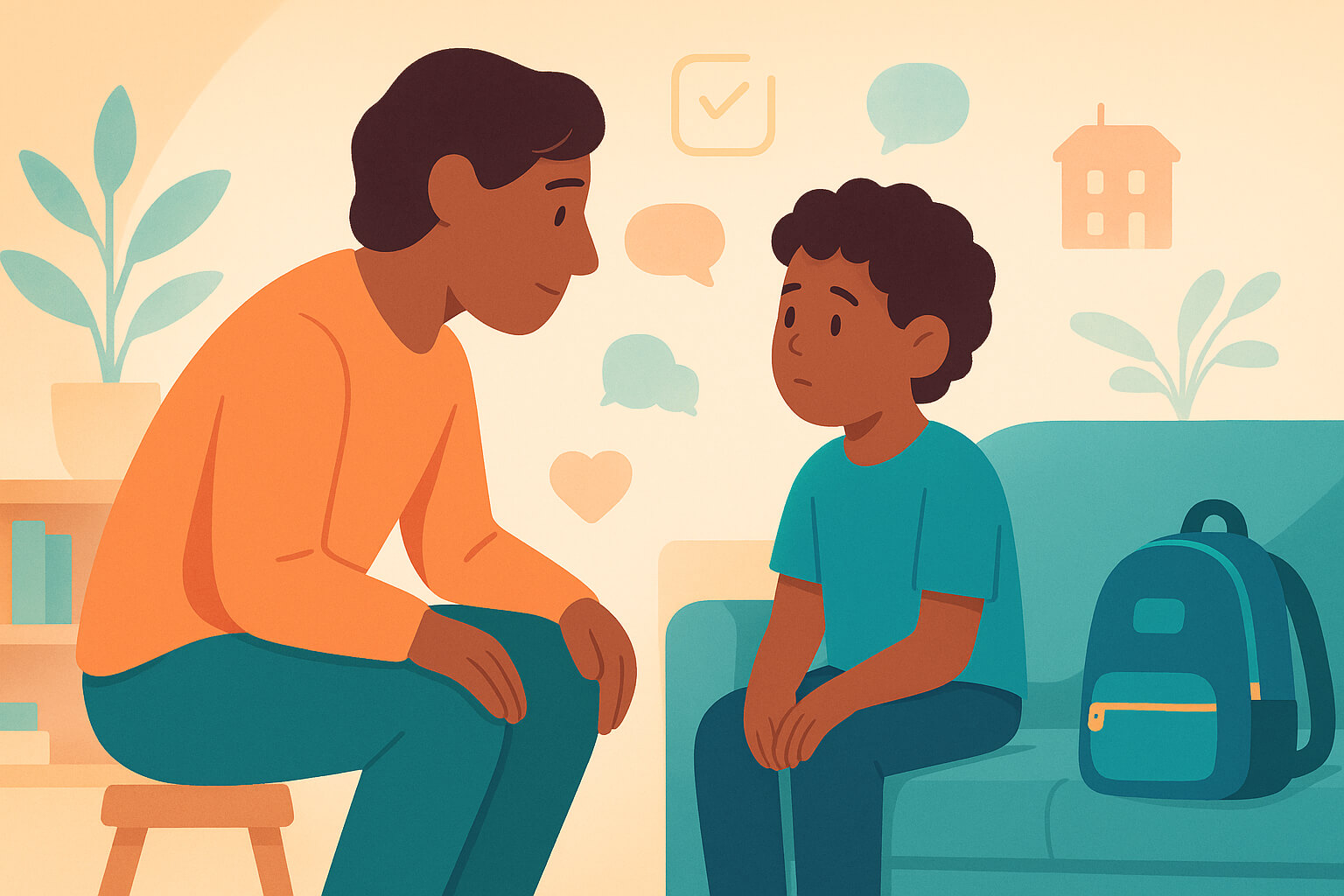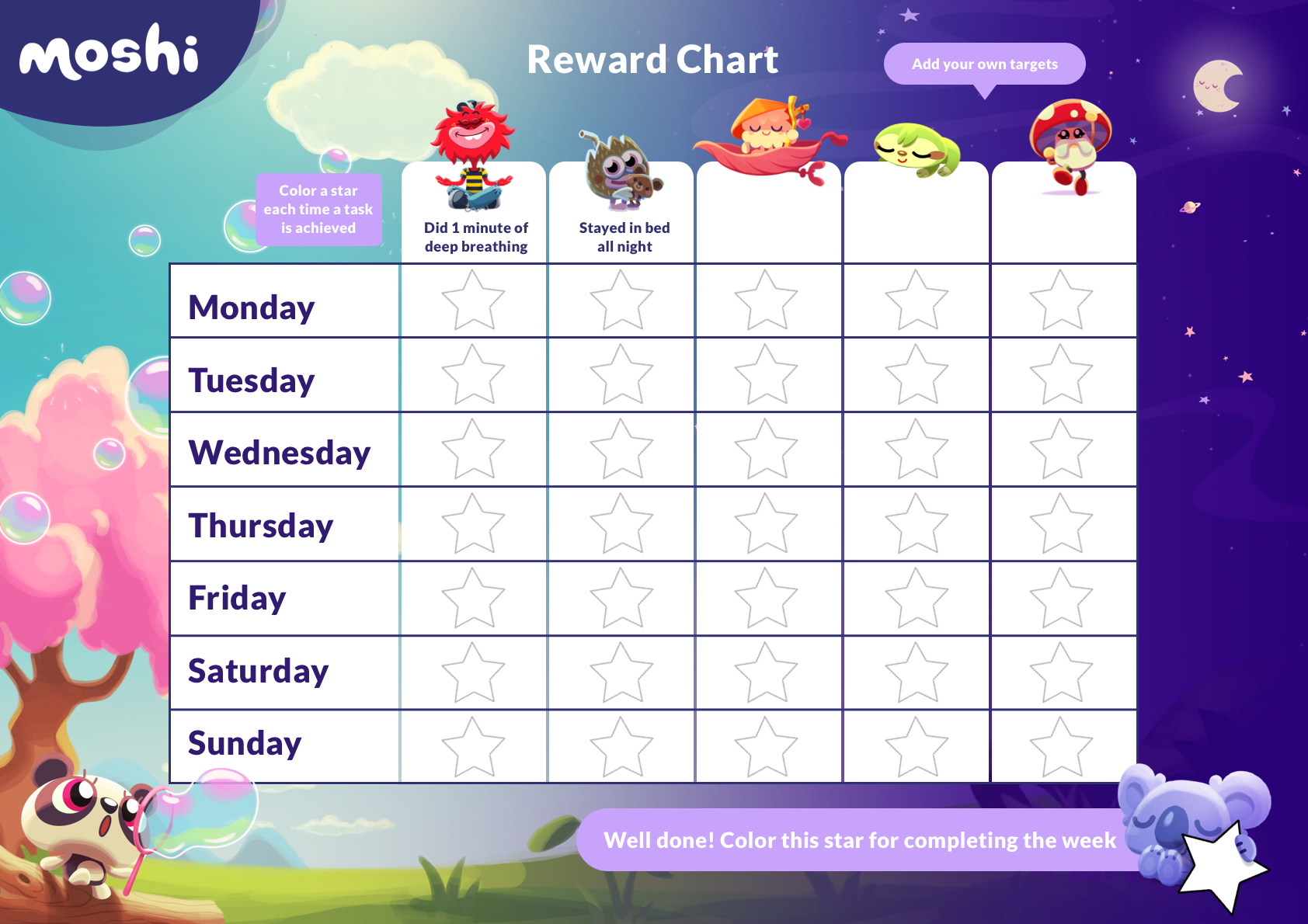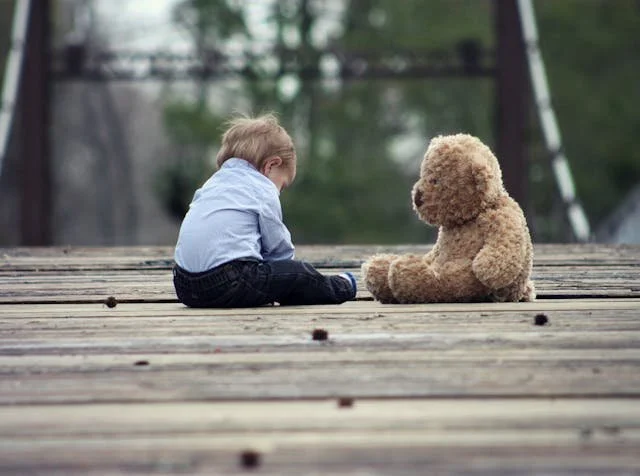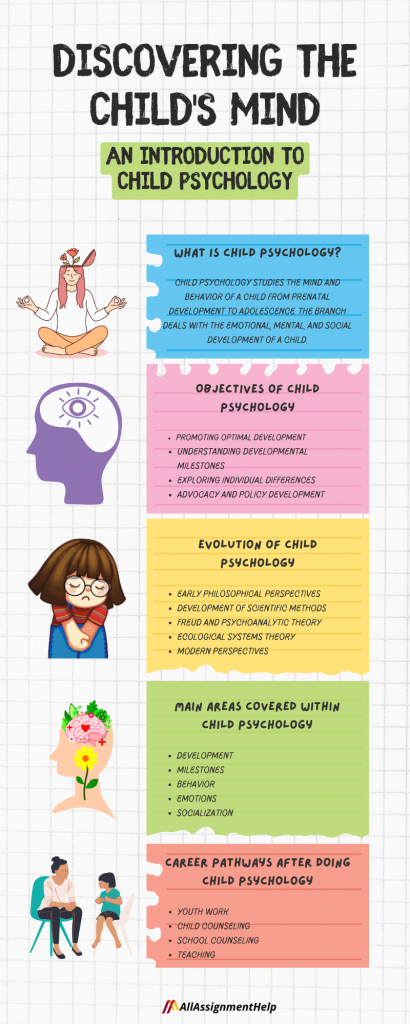How Do You Know If Your Child Has a Behavior Disorder? As a parent, you want the best for your child.
But sometimes, their actions leave you feeling confused, frustrated, or even worried. You might wonder if what you’re seeing is just a phase or something more serious. Could their tantrums, defiance, or struggles at school be signs of a behavior disorder in children?
You’re not alone in asking these questions. Many parents face the same concerns, and it’s natural to feel overwhelmed. But here’s the thing—early understanding can make all the difference. By recognizing the signs and knowing what to look for, you can take steps to support your child and help them thrive. This article will guide you through the common signs of behavior disorders, what they could mean, and when to seek help. Keep reading—you may discover answers that bring clarity, ease your mind, and empower you to take action. Your child’s well-being is worth it.
Common Warning Signs
Recognizing a behavior disorder in children can feel overwhelming for parents. Early detection is key to providing the right support. Understanding the warning signs can help you take effective steps. Some behaviors may also be linked to learning differences; the CDC recommends talking with your child’s healthcare provider and, when appropriate, getting a comprehensive evaluation by a mental health professional (CDC).
1. Frequent Temper Tantrums
Children often have tantrums, but frequent episodes may signal a problem. Tantrums lasting longer than expected or occurring multiple times daily may indicate a deeper issue.
2. Difficulty Following Rules
Some children struggle to respect boundaries or follow rules. Constant defiance or refusal to comply might point to a behavior disorder.
3. Aggressive Behavior
Consistent aggression towards others, including peers or family members, is concerning. Physical fights, biting, or hitting are warning signs that require attention.
4. Trouble Managing Emotions
Outbursts of anger, frustration, or sadness beyond typical levels may occur. Difficulty calming down or expressing emotions appropriately could signal a problem.
5. Social Withdrawal
Children with behavior disorders may isolate themselves from friends or family. Avoiding social interactions and preferring to be alone could indicate underlying issues.
6. Poor Academic Performance
Behavior disorders often impact focus and learning abilities. Falling grades, missing assignments, or trouble concentrating at school might reflect these challenges.
7. Persistent Lying Or Stealing
Repetitive lying or stealing, especially without remorse, could indicate a disorder. These behaviors can disrupt trust and relationships at home and school.
8. Sleep Issues
Children with behavior disorders may struggle with sleep patterns. Difficulty falling asleep, frequent nightmares, or waking up tired may occur.
9. Excessive Worry Or Fear
Constant anxiety or fearfulness beyond what’s typical for their age is a sign. They might avoid certain places, activities, or people due to overwhelming fear.
10. Impulsivity
Acting without thinking or showing poor self-control might signal a problem. Interrupting conversations or taking unnecessary risks is common in such cases.
Emotional Outbursts
Does your child often have sudden emotional explosions that seem out of proportion to the situation? Emotional outbursts can be one of the clearest signs of a potential behavior disorder. These episodes might leave you feeling frustrated or helpless, but understanding the triggers and patterns behind them is key to helping your child. Let’s break it down.
What Do Emotional Outbursts Look Like?
Emotional outbursts aren’t just tantrums over a toy or snack. They can include yelling, crying, hitting, or even throwing things. You might notice these moments come out of nowhere, leaving you puzzled about what caused them.
For instance, your child might scream uncontrollably because their routine changed slightly or because they were told “no.” It’s not just the reaction—it’s the intensity and frequency of these events that you should pay attention to.
How Are Emotional Outbursts Different From Typical Tantrums?
All kids have tantrums. They’re a normal part of growing up and learning to navigate emotions. But with a behavioral disorder, these outbursts are not tied to typical developmental milestones.
If you find that the emotional outbursts occur almost daily or last for extended periods, it may go beyond typical childhood behavior. Ask yourself: Does my child seem unable to calm down even with comfort or distraction? That’s often a red flag.
Why Are Emotional Outbursts A Concern?
Frequent and extreme emotional outbursts can disrupt daily life—for both your child and your family. They can make simple tasks, like getting ready for school or visiting relatives, feel like monumental challenges.
These episodes can also affect your child’s relationships with peers and teachers. If your child struggles to regulate their emotions, they may face social isolation or even misunderstandings about their behavior.
What Can You Do?
Start by observing patterns. Do the outbursts always happen in certain situations, like bedtime or crowded places? Keeping notes can help you understand triggers and prepare for them in advance.
Consider talking to your child’s teacher or caregiver. They might notice behaviors you don’t see at home. This can give you a broader picture of what’s happening.
If the outbursts persist, don’t hesitate to seek professional help. A child therapist or psychologist can assess whether your child’s behavior is typical or points to a larger issue.
Emotional outbursts can be overwhelming, but they’re also an opportunity to learn more about your child’s needs. By paying attention and taking action, you can help them navigate their emotions and feel more in control. How do you handle emotional outbursts in your daily life? Let us know in the comments below!
Social Challenges
Children with behavior disorders often struggle with social challenges. These difficulties can show up in their interactions with peers, teachers, and even family members. Understanding these signs can help you support your child and guide them toward better social skills.
1. Difficulty Making Friends
Does your child have trouble connecting with others their age? Kids with behavior disorders may find it hard to build friendships. They might be too shy, overly aggressive, or unable to pick up on social cues, like tone of voice or body language.
Observe how your child interacts with other kids at school or during playdates. If they frequently argue, isolate themselves, or struggle to join group activities, this could point to an underlying issue. Take notes and consider asking their teacher for feedback on how they behave in group settings.
2. Trouble Managing Emotions
Extreme emotional reactions can be a red flag. Your child may cry, yell, or lash out during disagreements or when they don’t get their way. These outbursts can make it challenging for them to maintain positive relationships.
Pay attention to how your child reacts to frustration or disappointment. Do they stay upset much longer than other kids? If this becomes a pattern, it might be time to reach out to a professional for guidance.
3. Avoidance Of Social Situations
Does your child actively avoid social activities? Skipping birthday parties, refusing to join clubs, or dreading recess could indicate discomfort in social settings. This avoidance might stem from fear of rejection or feeling different from their peers.
Encourage your child to share how they feel about these situations. Creating a safe space for open conversations can help you understand their perspective. Once you know their concerns, you can work together to address them.
4. Conflict With Authority Figures
Frequent arguments with teachers or other adults may be another warning sign. Children with behavior disorders often struggle with boundaries and may resist authority. This can lead to repeated disciplinary actions at school or tension at home.
Ask yourself, does your child consistently push back against rules? If so, they might need extra support to understand the importance of structure and boundaries. Building a routine and setting clear, consistent expectations can help ease some of these challenges.
5. Struggles With Teamwork
Working in groups can be especially challenging for kids with behavior issues. They may dominate the group, refuse to compromise, or withdraw completely. These behaviors can make collaborative projects or team sports feel like a nightmare—for both them and their peers.
Watch how your child participates in team settings. Are they able to share responsibilities and listen to others’ ideas? If not, practicing these skills at home through simple activities, like board games, can be a good starting point.
Social challenges don’t have to define your child. With patience and the right support, they can develop the skills they need to thrive socially. What small steps will you take today to help your child navigate these difficulties?
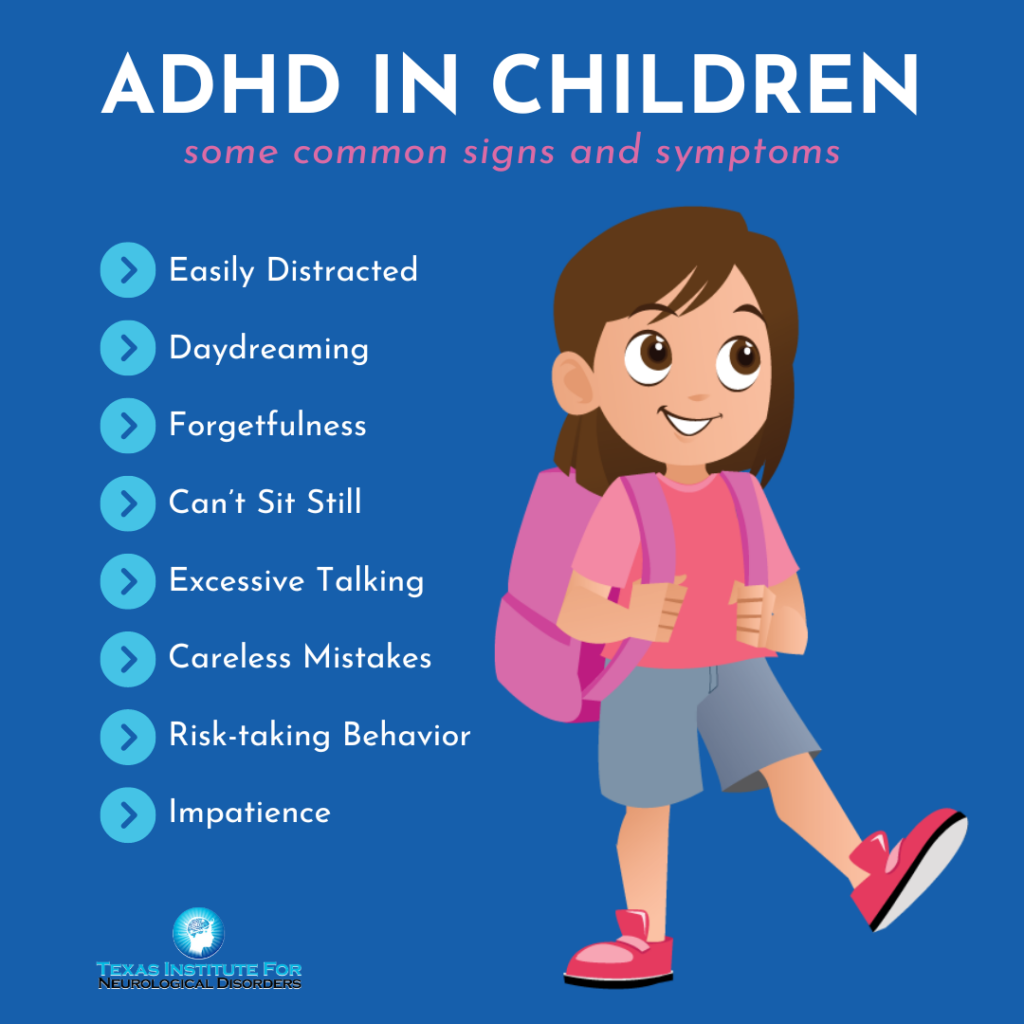
Credit: www.texasinstituteforneurologicaldisorders.com
School Performance Issues
School performance can often reveal early signs of a behavior disorder. Struggles in academics or classroom conduct may indicate deeper issues. It’s essential to recognize these signals to provide timely support for your child.
Changes In Academic Achievement
A sudden drop in grades can be a warning sign. Children with behavior disorders may find it hard to focus on tasks. They might also avoid completing homework or participating in class activities. This lack of engagement often affects their academic progress.
Frequent Disciplinary Actions
Behavior issues at school often lead to disciplinary actions. Teachers might report incidents of defiance, aggression, or rule-breaking. Regular notes or calls from school regarding such issues could point to a problem.
Difficulty Following Instructions
Children with behavior disorders often struggle with following instructions. They may interrupt the teacher or ignore classroom rules. This disruptiveness can make it hard for them to keep up with lessons.
Social Challenges With Peers
Behavior disorders can affect how children interact with classmates. They might argue frequently or struggle to maintain friendships. This social isolation can also impact their overall school experience.
Excessive Absenteeism
Skipping school or frequent absences might indicate a deeper issue. Children may avoid school due to anxiety, frustration, or feeling overwhelmed. This pattern can further hinder their academic and social growth.
U.S. families can request a free school evaluation under the Individuals with Disabilities Education Act (IDEA) to determine eligibility for services and supports (U.S. Department of Education).
Physical Symptoms
When your child is struggling with a behavior disorder, it’s not just their emotions or actions that reveal the issue. Physical symptoms can also be a strong indicator. These signs are often overlooked, but they can provide critical clues that something deeper is going on.
Changes In Sleep Patterns
Does your child struggle to fall asleep or stay asleep? Sleep disruptions can signal underlying anxiety or stress, often tied to behavior disorders. Pay attention if they frequently wake up tired or complain about nightmares.
A lack of restful sleep can affect their mood and ability to focus, making behavioral challenges even harder to manage. Keep a sleep diary to track patterns and bring it up with your pediatrician.
Frequent Stomachaches Or Headaches
Physical discomfort like stomachaches or headaches might seem unrelated, but they can be stress-induced. If your child complains about these issues often, it’s worth digging deeper.
Stress from behavioral struggles can manifest in the body. Ask your child questions about when the pain occurs—before school, after social situations, or during specific activities.
Unusual Changes In Appetite
Has your child suddenly lost interest in food or started eating much more than usual? Both overeating and loss of appetite can be physical signs of emotional distress.
Behavior disorders often come with emotional ups and downs, which can affect eating habits. Keep an eye on their mealtime behaviors to see if it’s tied to certain emotions or events.
Excessive Fatigue
If your child seems to be tired all the time—even after adequate sleep—it could be a sign of a behavior disorder. Emotional strain takes a toll on physical energy levels.
Fatigue might lead to withdrawal from activities they usually enjoy. Ask yourself: Is this just normal tiredness, or could something more serious be at play?
Unexplained Tics Or Nervous Movements
Have you noticed your child blinking excessively, fidgeting, or developing other nervous habits? These can be physical manifestations of anxiety or stress linked to behavior disorders.
These movements are often involuntary and may appear during stressful situations. Observe when they occur and talk to your child about how they’re feeling.
Physical symptoms are your child’s body trying to communicate something important. Don’t brush off these signs as unrelated to their behavior. Instead, use them as a tool to better understand their overall well-being.
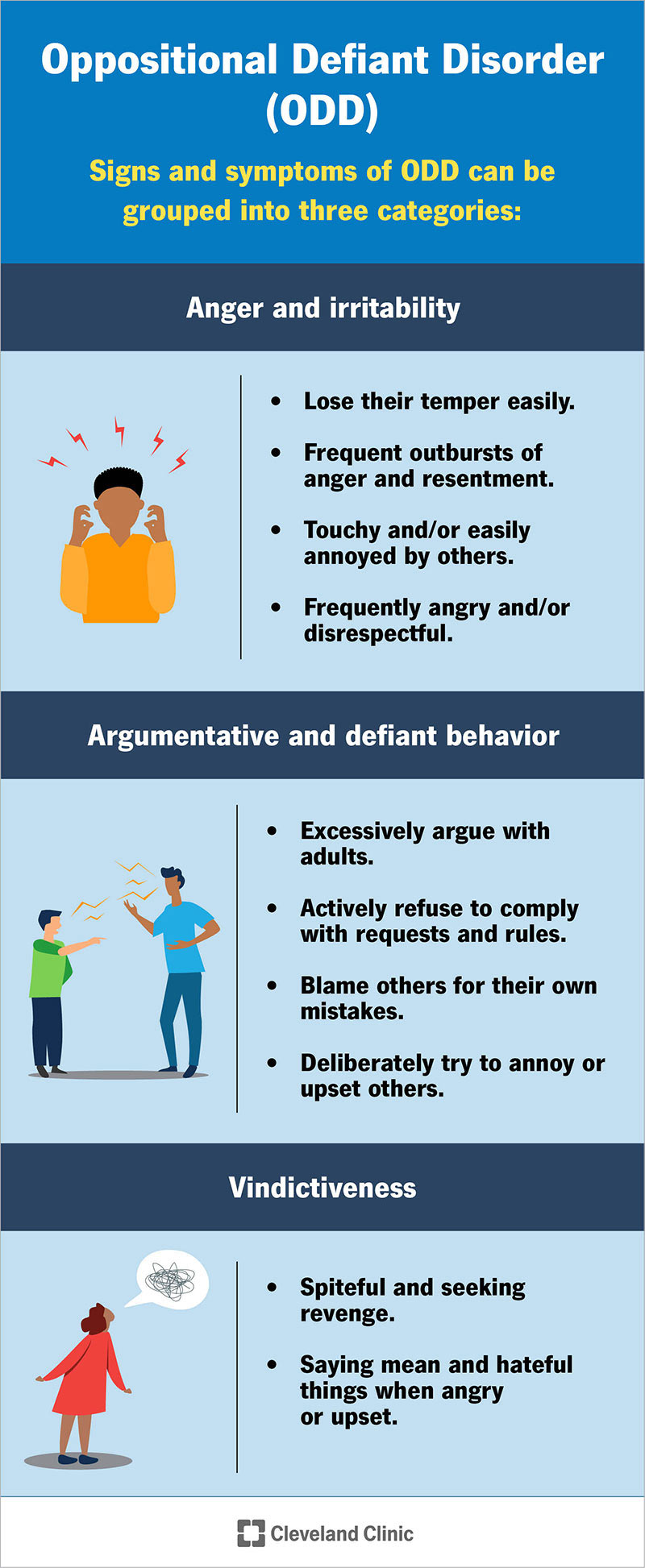
Credit: my.clevelandclinic.org
When To Seek Help
Recognizing when your child needs professional help for a potential behavior disorder can feel overwhelming. You might wonder if their tantrums, defiance, or difficulty focusing are just part of growing up. Knowing when to seek help can make a huge difference—not just for your child, but for your peace of mind as well.
1. Persistent Issues That Disrupt Daily Life
Does your child’s behavior create ongoing challenges at home, school, or with friends? If the tantrums don’t seem to end or their aggression leads to frequent conflicts, it’s worth taking a closer look. Pay attention if teachers or caregivers mention consistent struggles, as they see your child in different settings.
Behavior disorders often show patterns that don’t resolve on their own. A one-off outburst isn’t a red flag—but daily meltdowns or refusal to follow instructions could signal an underlying issue. Trust your instincts if something feels “off” beyond typical childhood behaviors.
2. Emotional Outbursts That Seem Extreme
We all have bad days, but does your child seem to overreact in ways that feel excessive? Screaming over small setbacks, lashing out physically, or withdrawing completely might indicate deeper emotional struggles. These reactions are especially concerning if they happen repeatedly or without clear triggers.
A friend once shared how her son would cry uncontrollably for hours if his block tower fell. She thought it was “just a phase,” but after seeking help, they discovered he had an anxiety disorder. Don’t wait for things to spiral—early intervention matters.
3. Sudden Changes in Behavior
Has your child’s behavior shifted dramatically in a short period? Maybe they were outgoing and happy, but now they avoid activities they once loved. Sudden mood swings, sleep problems, or even changes in eating habits can all be signs something’s wrong.
Sometimes, these changes are linked to external stressors like bullying or family changes. Other times, they may point to conditions like depression or ADHD. Either way, a professional can help uncover the root cause and provide support.
4. When Your Strategies Aren’t Working
Have you tried setting boundaries, offering rewards, or talking things out, only to feel stuck? If your usual parenting tools seem ineffective, it might be time to bring in an expert. A fresh perspective can help you understand what’s going on and how to address it.
Think of it this way: you wouldn’t hesitate to call a doctor if your child had a persistent fever. Behavioral challenges deserve the same attention. Sometimes, external guidance is what you need to move forward.
5. Trust Your Gut
No one knows your child better than you do. If you feel something isn’t right, don’t dismiss that instinct. Even if others downplay your concerns, it’s okay to seek help for reassurance—or answers.
Reaching out doesn’t mean you’ve failed as a parent. It shows you care deeply about your child’s well-being. Remember, early action can pave the way for a happier, healthier future for your family.
Clinical note: Pediatric visits routinely include screening for mental, emotional, and behavioral concerns; ask your pediatrician about current recommendations (American Academy of Pediatrics).
Safety note (U.S.): If your child is at risk of harming themselves or others, call 911 (or your local emergency number). For immediate support, contact the 988 Suicide & Crisis Lifeline—available 24/7 by call, text, or chat.

Credit: my.clevelandclinic.org
Frequently Asked Questions
How Can I Tell If My Child Has Behavioral Problems?
Watch for signs like frequent tantrums, aggression, defiance, difficulty focusing, or trouble socializing. Sudden changes in mood or behavior may indicate issues. Persistent struggles with school, family, or peers can signal problems. Consult a pediatrician or counselor if concerns persist to assess and address your child’s needs effectively.
What Are The Symptoms Of A Behavioral Disorder?
Symptoms of behavioral disorders include aggression, defiance, impulsivity, difficulty following rules, poor social skills, and frequent mood swings. Children may struggle with focus, exhibit disruptive behaviors, or display emotional outbursts. Persistent issues affecting daily life and relationships often indicate the presence of a behavioral disorder.
Early intervention and therapy can help manage symptoms effectively.
How To Fix A Child Behavior Problem?
Identify triggers and set clear boundaries for your child. Use positive reinforcement to encourage good behavior. Stay consistent with rules and consequences. Communicate calmly and listen to their concerns. Seek professional help if problems persist. For young children, parent training in behavior management is recommended and often tried before medication (CDC).
How To Tell If A Child Has A Personality Disorder?
Personality disorders are rarely diagnosed before age 18; overlapping symptoms are better evaluated by a qualified child and adolescent psychiatrist. If you’re concerned, consult a professional for a comprehensive assessment (AACAP).
Conclusion
Recognizing a behavior disorder in your child can feel overwhelming. Early signs matter. Paying attention to their actions and emotions helps. Speak with professionals for guidance and clarity. Support at home plays a big role in their progress. Open communication builds trust and understanding.
Remember, every child is unique and may need different care. Seeking help is a step toward their well-being. Stay patient and consistent in your approach. With the right support, positive change is possible. Your efforts can make a real difference in their life.
